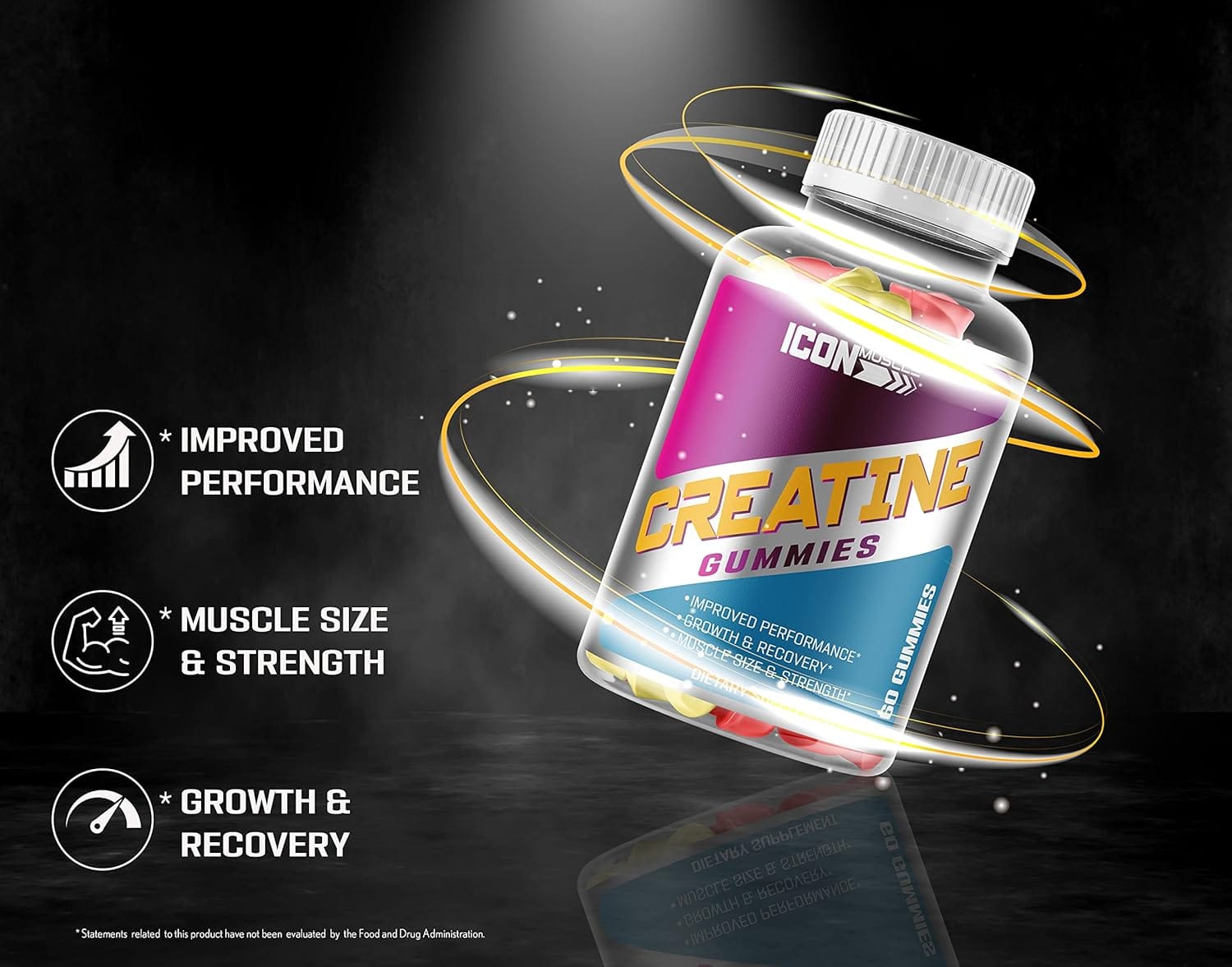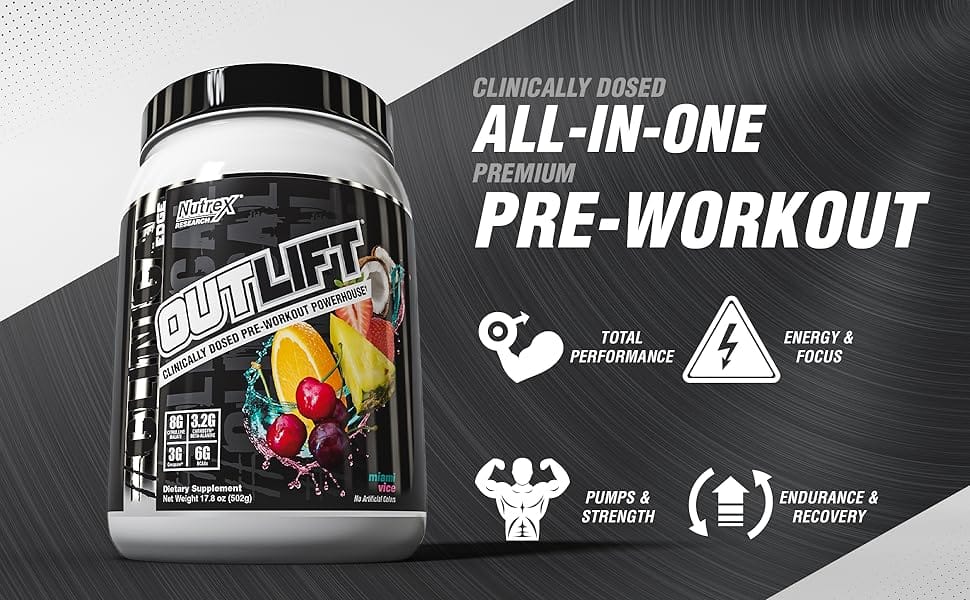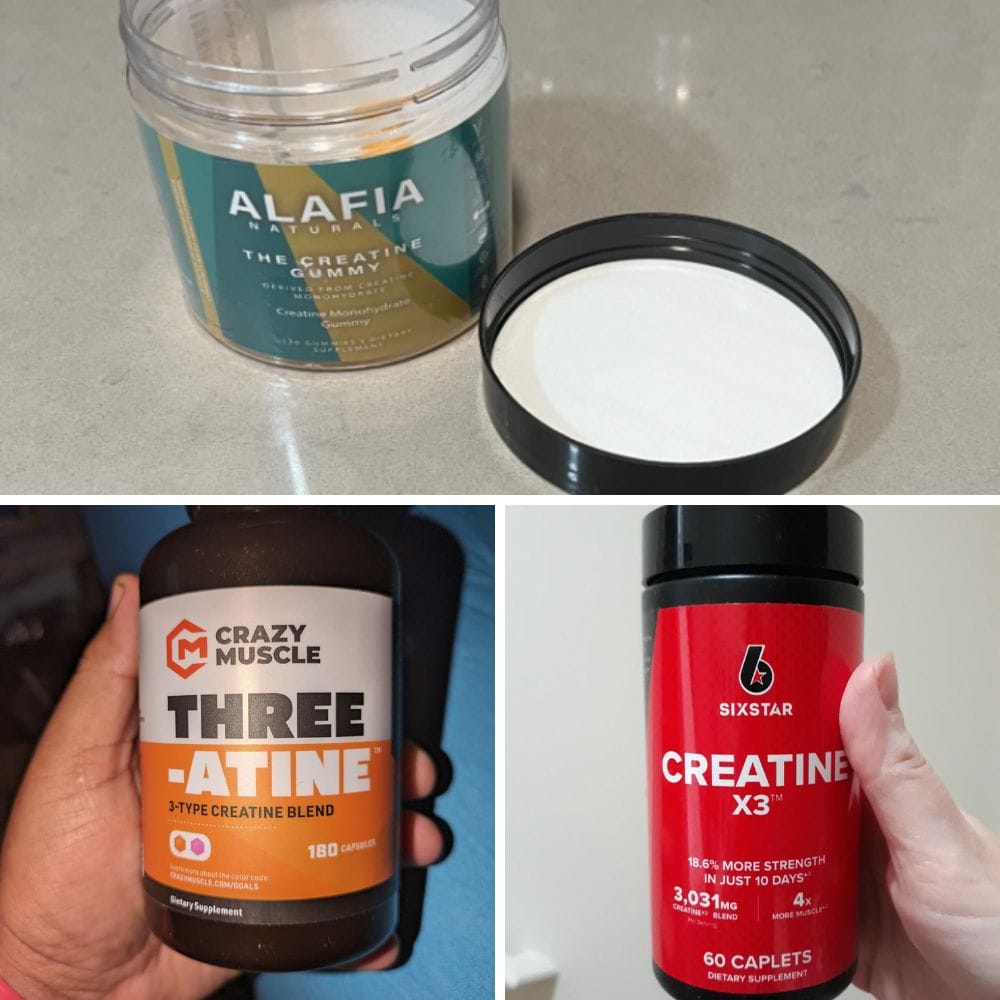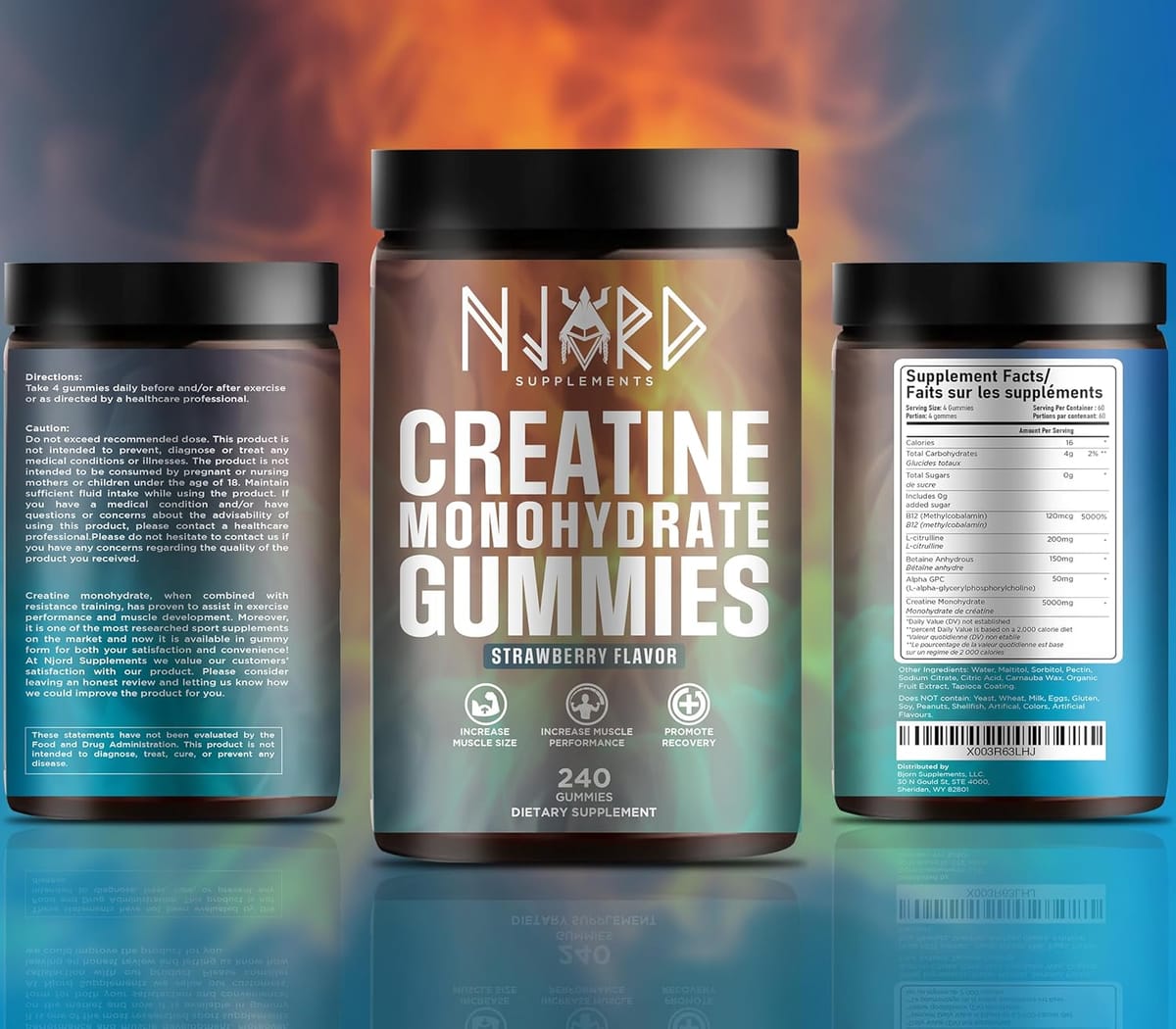Key Takeaways:
- Consistent Creatine Intake: Taking creatine on off days helps maintain optimal muscle creatine levels.
- Enhanced Recovery: Creatine supplementation on rest days can enhance muscle recovery and reduce muscle breakdown.
- Overall Benefits: Continuous creatine intake supports muscle growth, strength gains, and overall athletic performance.
Introduction
Creatine is a naturally occurring compound in the body that plays a vital role in energy production, especially during high-intensity workouts. Many athletes and fitness enthusiasts wonder, "Should I take creatine on off days?" This question is essential for those seeking to maximize muscle growth, enhance recovery, and improve overall performance. In this article, we'll delve into all the benefits and science behind creatine supplementation and its benefits, even on rest days.
What is Creatine?

Creatine is a compound made up of amino acids, primarily found in muscle cells. It helps produce adenosine triphosphate (ATP), the primary energy currency of the cell. During high-intensity exercise, ATP is rapidly depleted, and creatine helps replenish it, allowing for sustained performance and muscle contraction.
Creatine monohydrate is the most common form of creatine supplementation. It is widely researched and proven to be effective in increasing muscle mass, strength, and exercise performance. By consuming creatine monohydrate, you can elevate your muscle creatine levels, which can lead to significant improvements in your workouts.
The Role of Creatine in Muscle Growth
Creatine supplementation is known to increase muscle mass by enhancing the water content within muscle cells. This process, known as cell volumization, can lead to muscle hypertrophy, or an increase in muscle size. Additionally, creatine increases satellite cell mitotic activity, which is crucial for muscle repair and growth of muscle tissue.
Research suggests that creatine intake can further muscle damage and also reduce muscle cell damage and muscle breakdown, making it an essential dietary supplement for those engaged in resistance training. By maintaining elevated creatine levels, you can support muscle growth and recovery, even on days when you're not working out.
Creatine on Rest Days: Why It Matters
Taking creatine on rest days is essential for maintaining optimal muscle creatine levels. Your body constantly uses creatine, even when you're not exercising. By consuming creatine daily, you ensure that your muscles have a steady supply of this vital molecule, which can enhance muscle recovery and prepare you for your next training session.
Moreover, creatine on rest days can help reduce muscle glycogen depletion, which is crucial for maintaining energy levels and overall performance. By keeping your creatine stores topped up, you can ensure that your muscles are ready to perform at their best during your next workout.
The Creatine Loading Phase
The creatine loading phase involves consuming a higher amount of creatine for a brief period, typically 20 grams per day for 5-7 days. This phase helps saturate your muscles with creatine quickly, leading to faster results in terms of muscle growth and strength gains.
After the loading phase, you can switch to a maintenance dose of creatine powder 3-5 grams per day. This maintenance phase ensures that your muscle creatine levels remain elevated, providing continuous benefits for muscle repair, recovery, and performance.
Benefits of Taking Creatine on Off Days

Taking creatine on off days offers several benefits, including enhanced muscle recovery, reduced muscle breakdown, and improved overall performance. By maintaining elevated creatine levels, you can support muscle repair and growth, even when you're not actively training.
Additionally, creatine on rest days can help reduce muscle glycogen depletion, which is essential for maintaining energy levels and overall performance. By keeping your creatine stores topped up, you can ensure that your muscles are ready to perform at their best during your next workout.
Creatine and Muscle Recovery
Creatine supplementation can enhance muscle recovery by reducing muscle cell damage and inflammation. This is particularly important for athletes and fitness enthusiasts who engage in high-intensity exercise, as it can help reduce muscle soreness and improve overall recovery time.
By taking creatine on rest days, you can support your body's natural recovery processes, ensuring that your muscles are ready for your next training session. This can lead to improved performance, increased muscle mass, and better overall results from your workouts.
Creatine and Weight Gain
One common concern with creatine supplementation is weight gain. While it's true that creatine supplements can cause an increase in body weight, this is primarily due to water retention within muscle cells. This process, known as cell volumization, can lead to muscle hypertrophy and increased muscle mass.
It's important to note that the weight gain associated with taking creatine on rest, is not fat gain. Instead, it's an increase in lean muscle mass, which can improve your overall body composition and performance. By taking creatine on rest days, you can support muscle growth and recovery, leading to better results from your training.
Creatine and Athletic Performance
Creatine is widely recognized for its ability to enhance athletic performance, particularly during high-intensity workouts. By increasing muscle creatine levels, you can improve your ability to lift heavier weights, perform more repetitions, and sustain high-intensity exercise for longer periods.
Taking creatine on rest days ensures that your muscles remain saturated with creatine, providing continuous support for your athletic performance. This can lead to improved strength gains, increased muscle power, and better overall results from your training.
Creatine and Muscle Glycogen
Muscle glycogen is a crucial energy source for high-intensity exercise. Creatine supplementation can help increase muscle glycogen stores, providing a readily available energy source for your workouts. By taking creatine on rest days, you can ensure that your muscle glycogen levels remain elevated, supporting your performance and recovery.
Additionally, creatine can help reduce muscle glycogen depletion, which is essential for maintaining energy levels and overall performance. By keeping your creatine stores topped up, you can ensure that your muscles are ready to perform at their best during your next workout.
Creatine and Muscle Repair
Creatine supplementation can support muscle repair by reducing muscle cell damage and inflammation. This is particularly important for athletes and fitness enthusiasts who engage in high-intensity exercise, as it can help reduce muscle soreness and improve overall recovery time.
By taking creatine on rest days, you can support your body's natural recovery processes, ensuring that your muscles are ready for your next training session. This can lead to improved performance, increased muscle mass, and better overall results from your workouts.
Creatine and Muscle Strength

Creatine is known for its ability to increase muscle strength, particularly during high-intensity workouts. By increasing muscle creatine levels, you can improve your ability to lift heavier weights, perform more repetitions, and sustain high-intensity exercise for longer periods.
Taking creatine on rest days ensures that your muscles remain saturated with creatine, providing continuous support for your strength gains. This can lead increase muscle creatine levels, to improved performance, increased muscle power, and better overall results from your training.
Creatine and Muscle Hypertrophy
Muscle hypertrophy, or an increase in muscle size, is a key goal for many athletes and fitness enthusiasts. Creatine supplementation can support muscle hypertrophy by enhancing the water content within muscle cells, leading to cell volumization and increased muscle mass.
By taking creatine on rest days, you can maintain elevated muscle creatine levels, supporting continuous muscle growth and recovery. This can lead to improved performance, increased muscle mass, and better overall results from your training.
Creatine and Exercise Performance
Creatine is widely recognized for its ability to increase energy and enhance exercise performance, particularly during high-intensity workouts. By increasing muscle creatine levels, you can improve your ability to lift heavier weights, perform more repetitions, and sustain high-intensity exercise for longer periods.
Taking creatine on rest days ensures that your muscles remain saturated with creatine, providing continuous support for your exercise performance. This can lead to improved strength gains, increased muscle power, and better overall results from your training.
Creatine and Lean Muscle
Lean muscle mass is a key goal for sports nutrition for many athletes and fitness enthusiasts. Creatine supplementation can support the development of lean muscle by enhancing the water content within muscle cells, leading to cell volumization and increased muscle mass.
By taking creatine on rest days, you can maintain elevated muscle creatine levels, supporting continuous muscle growth and recovery. This can lead to improved performance, increased muscle mass, and better overall results from your training.
Creatine and High-Intensity Workouts
High-intensity workouts require a significant amount of energy, and creatine plays a crucial role in energy production. By increasing muscle creatine levels, you can improve your ability to perform high-intensity exercise for longer periods, leading to better overall performance.
Taking creatine on rest days ensures that your muscles remain saturated with creatine, providing continuous support for your high-intensity workouts. This can lead to improved strength gains, increased muscle power, and better overall results from your training.
Creatine and Muscle Contraction
Muscle contraction is essential for high-intensity exercise, and creatine plays a crucial role in this process. By increasing muscle creatine levels, you can improve your ability to sustain muscle contractions, leading to better overall performance.
Taking creatine on rest days ensures that your muscles remain saturated with creatine, providing continuous support for your muscle contractions. This can lead to improved strength gains, increased muscle power, and better overall results from your training.
Creatine and Muscle Power
Muscle to increase muscle power is a key goal for many athletes and fitness enthusiasts. Creatine supplementation can support the development of muscle power by enhancing the water content within muscle cells, leading to cell volumization and increased muscle mass.
By taking creatine on rest days, you can maintain elevated muscle creatine levels, supporting continuous muscle growth and recovery. This can lead to improved performance, increased muscle mass, and better overall results from your training.


How much creatine should I take on off days?
A maintenance dose dietary creatine of 3-5 grams per day is sufficient for most individuals. This ensures that your muscle creatine levels remain elevated, providing continuous support for muscle growth, recovery, and performance.
Will taking creatine on off days cause weight gain?
Creatine can cause an increase in body weight due to water retention within muscle cells. However, this weight gain is primarily lean muscle mass, which can improve your overall health, body composition and performance.
Is it necessary to take creatine on rest days?
Yes, taking creatine on rest days is essential for maintaining optimal muscle creatine levels. Consistent creatine supplementation on rest day ensures that your muscles remain saturated with creatine, providing continuous support for muscle growth, recovery, and performance.

Taking creatine on off days is essential for maintaining optimal muscle creatine levels, enhancing muscle recovery, and improving overall performance. By consuming creatine daily, you can support muscle growth, reduce muscle breakdown, and ensure that your muscles are ready for your next training session. Whether you're in the loading phase or the maintenance phase, consistent creatine supplementation can lead to significant improvements in your workouts and overall results.









